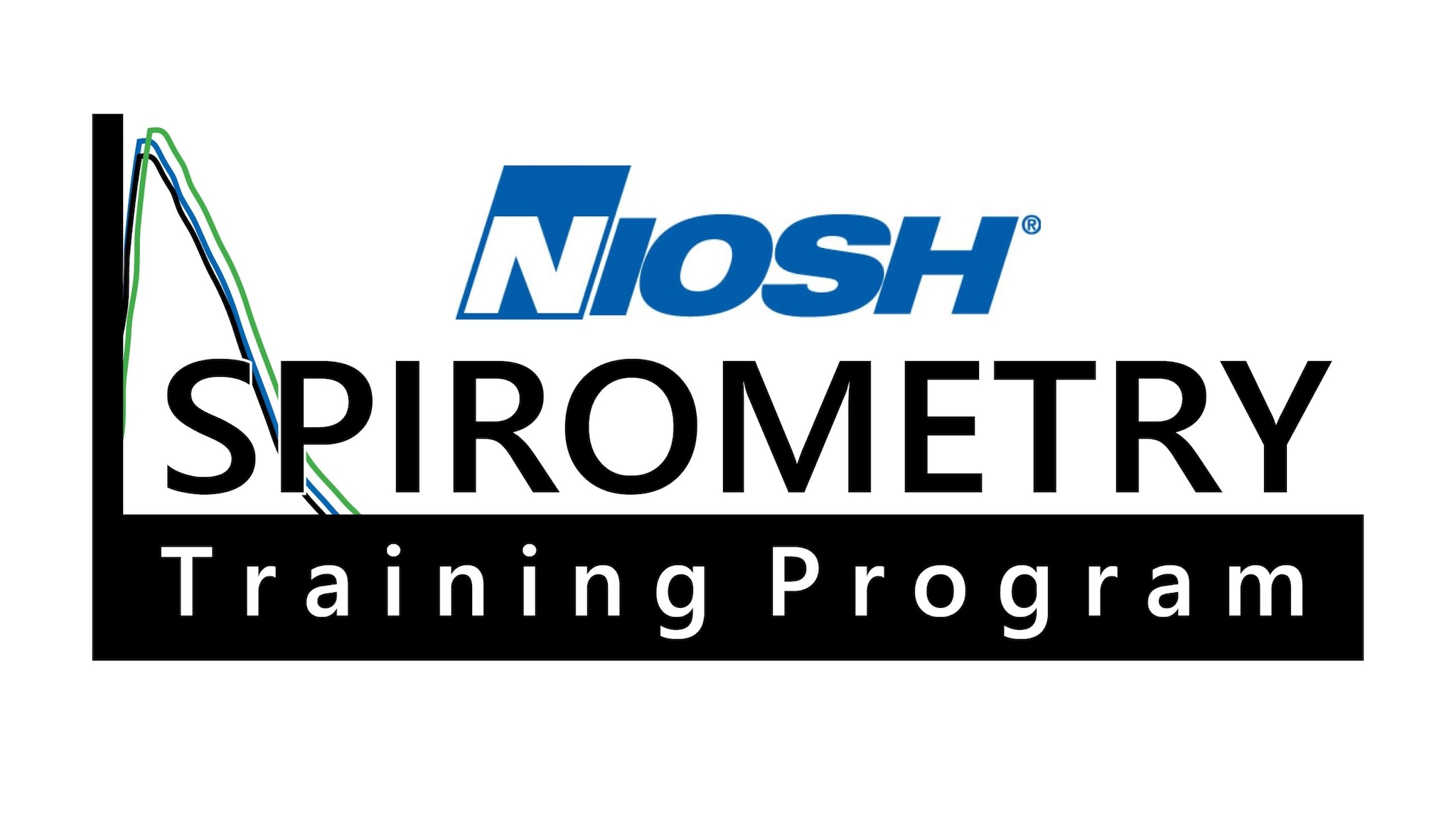What to know
The NIOSH Spirometry Training Program is responsible for approving course sponsors to train participants on how to perform spirometry, a lung function test. Various federal regulations require that individuals with NIOSH-approved spirometry training perform spirometry testing on workers exposed to certain work hazards including cotton, coal, and silica dusts.

NIOSH-approved courses
Various federal regulations require spirometry technicians performing spirometry as part of certain mandated health surveillance programs to have completed NIOSH-approved spirometry training courses. Examples include standards for:
- Cotton dust [29 CFR 1910.1043(h)(1)(iii)]
- Respirable coal mine dust [42 CFR 37.95]
- Respirable crystalline silica in general industry and maritime [29 CFR 1910.1053(i)(2)(iv)]
- Respirable crystalline silica in Construction [29 CFR 1926.1153(h)(2)(iv)]
NIOSH-approved spirometry training courses are also widely accepted for training healthcare professionals in other occupational settings. The purpose of NIOSH-approved courses is to gain knowledge and practical skills for collecting accurate and valid spirometry results.
For information on becoming a course sponsor, technical director, or faculty member, go to How to Get Involved.
Course types
New participants start by taking initial training (a minimum of 16 hours of course instruction). Sponsors offer 2–3-day courses. Initial courses adhere to a 1:6 student to practicum instructor ratio, as well as a 1:6 student to spirometer ratio.
On-line and 1-day refresher courses are available for participants who have already successfully completed the initial training. Refresher courses last 1-day (minimum of 7 hours).
Registration costs vary depending on the type of course, the sponsor, and geographical location. Currently scheduled courses, dates, and locations are located on the course schedule page and the course map.
Advanced spirometry training
NIOSH does not offer advanced training in spirometry testing. However, two NIOSH-approved sponsors offer physicians’ training for spirometry. Information about their training can be found at:
Certification
Students who successfully complete a NIOSH-approved spirometry training course will receive a certificate from the course sponsor. Certification does not mean you are "NIOSH certified." Rather, it means you passed a NIOSH-approved course.
Certificates are awarded to students for successfully completing a class. They are not transferable to any organization, company, or institution that may have provided financial assistance or reimbursement.
Expiration
Course certificates are valid for 5 years. There is a 7-month grace period allowed after the initial training course 5-year expiration. After 5 years and 7 months, technicians must retake an initial 2- or 3-day course to continue testing under those regulations. It is highly recommended that technicians attend refresher courses well in advance of certificate expiration.
State Certifications
State medical boards determine specific requirements for performing clinical testing in their states. Some state medical board requirements cover only diagnostic testing, such as in hospitals or clinics. Others may also cover occupational disease surveillance in private companies. Contact your state medical board for further information.
The National Board for Respiratory Care provides respiratory therapists with certification for performing pulmonary function testing. This includes spirometry and other more complex tests. Certification candidates must meet minimum education and clinical experience requirements before they can take an examination.
Companies that hire occupational medicine staff usually provide minimum training requirements in their job announcements. These requirements should be carefully considered before expending resources to apply for a position.
SAMS
NIOSH-approved spirometry course director's resource login - Secure Access Management Services (SAMS)
Contact
NIOSH Spirometry Training Program
- 1000 Frederick Lane, Morgantown WV 26508
- Email: NIOSHbreathe@cdc.gov
